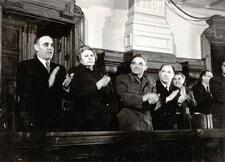Politics and Government: Communism
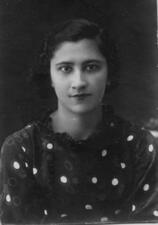
Leike Kogan
Lía Gilinski de Kogan, known as Leike Kogan (1911-2001), was a prominent activist in the Yiddisher Kultur Farband (YKUF/ ICUF) and its women's movement (Organización Femenina del ICUF, OFI), linked to the Yiddish-speaking section of the Argentine Communist Party. She stood out as a leader and teacher in the schools belonging to this network.
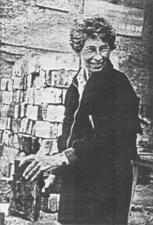
Ursula Kuczynski (Ruth Werner)
Operating under at least five different names in the course of her career, Ruth Werner (a pen name) was a singularly accomplished spy, whose espionage activities spanned some fifteen years, from 1931 to 1946. Twice awarded the order of the Red Banner, the highest Soviet military decoration, Werner also held the rank of colonel in the Red Army.
Bella Lewitzky
Bella Lewitzky, a maverick in the world of modern dance, distinguished herself as a preeminent performer, choreographer, artistic director, educator, public speaker, and civic activist. Defying norms that posited New York City as the center of American dance, she maintained the Lewitzky Dance Company in Los Angeles. She was known for two highly publicized encounters with the federal government and risking professional ostracism to stand upon principle.
Mischket Liebermann
Mischket Liebermann was an actress who was an active member of the KPD (Communist Party of Germany). Known for her roles in Scholem Asch’s Bronx Express and Ernst Toller’s Hoppla, Liebermann performed throughout Germany and the Soviet Union. After 1945, she participated in the cultural reconstruction of East Germany.
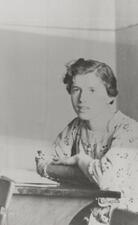
Hildegard Löwy
Born in 1922, Hildegard Löwy was the youngest member of the Baum Gruppe, a mainly Jewish resistance group against the Nazis. She had firm Zionist and pacifist principles and believed communism was the best way for Jews to obtain equal rights. Arrested in April 1942, Löwy tried to escape from prison but was ultimately convicted of Communist treason and executed in a Berlin prison.
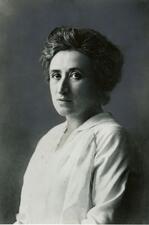
Rosa Luxemburg
Rosa Luxemburg was a socialist revolutionary known for her critical perspective. Born in Poland, Luxemburg had become an important figure in the world socialist movement by 1913. She argued against Lenin’s hierarchal conception of party organization, and against revisionism. Luxemburg was internationalist in orientation and unflinchingly dedicated to a radical democratic vision.
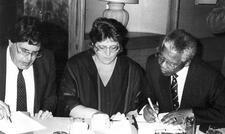
Gill Marcus
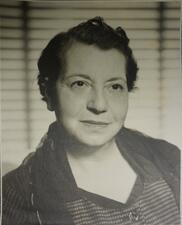
Moroccan Jewish Women and Politics
Jewish women have been involved in Moroccan politics since at least the nineteenth century. From a Jewish martyr of the early nineteenth century, to a twenty-first century Jewish woman running for parliament, Morocco has been home to remarkable Jewish women participating in political life.
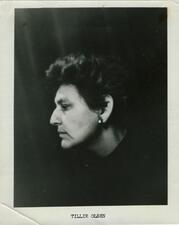
Tillie Olsen
Pauline Podbrey
Pauline Podbrey was a committed Communist and anti-Apartheid activist. A Lithuanian child migrant to South Africa, she moved away from her Jewish roots and endured exile as a result of her mixed-race marriage, only to become disillusioned with Communism.
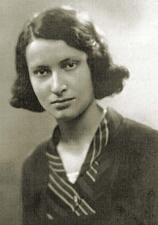
Zosha Posnanska
A left-wing political activist and Soviet intelligence recruit, Zosha Posnanska was a fearless fighter against the Nazis and for a peaceful world.
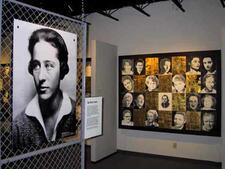
Olga Benário Prestes
A Communist activist before and during World War II, Olga Benário Prestes’ political activities led her to the highest ranks of the Communist Youth International. Her relationship with Brazilian Communist leader Luis Carlos Prestes, who was part of a failed coup, led to her deportation to Germany, where she was gassed at Bernburg in 1942. Although her name is not well known in the United States, Olga is famous in Brazil and was considered a great heroine in the German Democratic Republic.
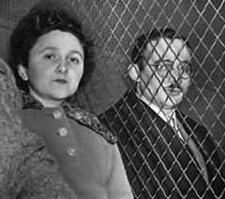
Ethel Rosenberg
Esther Rosenthal-Shneiderman
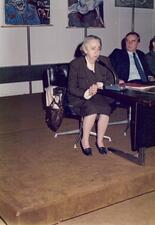
Mina Fridman Ruetter
Mina Fridman Ruetter (1922-2003), an Argentinean-born Jew, was the most prominent leader of the Yiddisher Kultur Farband (YKUF) beginning in the 1970s. She studied and worked as a writer, teacher, and translator in organizations linked to the Communist Party and the Soviet Union. She was a highly visible leader and the disciple of YKUF intellectuals such as Pinie Katz and Samuel Gordon.
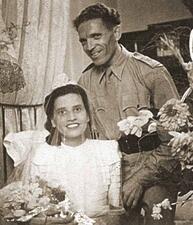
Bouena Sarfatty Garfinkle
Bouena Sarfatty Garfinkle, a Sephardi woman, risked her life over and over again to aid to her community during World War II. At a later stage in her life, Bouena’s historical-literary acumen enabled her to record Jewish life in Salonika during the twentieth century, including the devastation to her community at the hands of the Nazis.
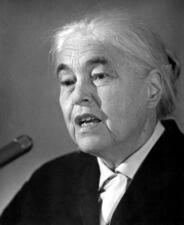
Anna Seghers
Anna Seghers is considered one of the most important German women writers of the twentieth century. Her many novels and stories written during her multiple exiles, including Das siebte Kreuz (1942) adapted into the Hollywood film “The Seventh Cross,” reflect her strong socialist and anti-fascist beliefs, and she remains controversially linked to her later involvement with the East German government.
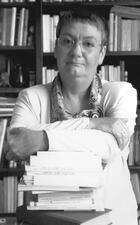
Clara Sereni
Clara Sereni was an Italian writer of Jewish descent. The rich legacy of her Jewish roots as well as her inherited passionate political commitment permeate all her narrative works. The act of writing offered Sereni an opportunity to articulate female subjectivity and language experimentation, providing a setting for exposing issues related to identity, politics of gender, disability, and ethnic diversity while building a new utopia.
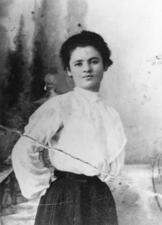
Clara Lemlich Shavelson
Clara Lemlich Shavelson pushed union leaders to recognize the importance of women in the labor movement and sparked the famous Uprising of the 20,000 garment workers strike in 1909. She continued her activism throughout her life, organizing around women’s suffrage and leading food boycotts and rent strikes.
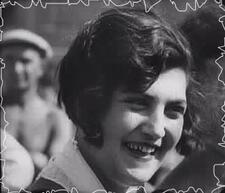
Esfir Il’inishna Shub
Esfir Shub was active as an editor, director, and writer of nonfiction films for twenty years, from 1927 to 1947—one of the few women in the Soviet Union at that time to achieve some standing in the film industry. Shub found success as a woman in the film industry by pioneering the form of compilation documentary and by producing technically competent work that satisfied the political needs of the communist moment.
Dora Shulner
Dora Shulner was a Yiddish writer who vividly evoked for her readers life in the Pale of Settlement before, during, and after the Russian Revolution and Civil War. She candidly portrayed women in their most intimate relationships with men, revealing the complexity of their disappointments and aspirations.
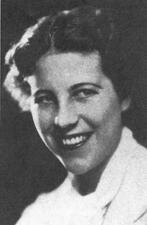
Tess Slesinger
Novelist and Hollywood screenwriter Tess Slesinger was born in New York on July 16, 1905. She published several works, including: The Unpossessedand Time: The Present. Slesinger died of cancer at age thirty-nine before the premiere of one of her final works, the acclaimed A Tree Grows in Brooklyn.
Chava Slucka-Kesten
Chava Slucka-Kesten started teaching in Warsaw before World War II and continued her career through the war in Moscow. After the war she became an author and sustained her political involvement. Writing from the perspective of a politically engaged woman, Slucka-Kesten offers a unique glimpse into pre- and post-war Jewish life in Poland’s cities and villages, as well as into the early years of the State of Israel.
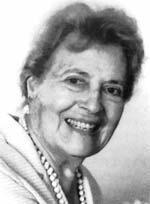
Virginia Snitow
Virginia Levitt Snitow was a multifaceted woman who was a teacher, political activist, pre-Second Wave feminist, poet, writer and founder of US/Israel Women to Women. Ahead of her time in the fight for both civil and women’s rights, Snitow was unafraid to take unpopular stances when fighting for others.

